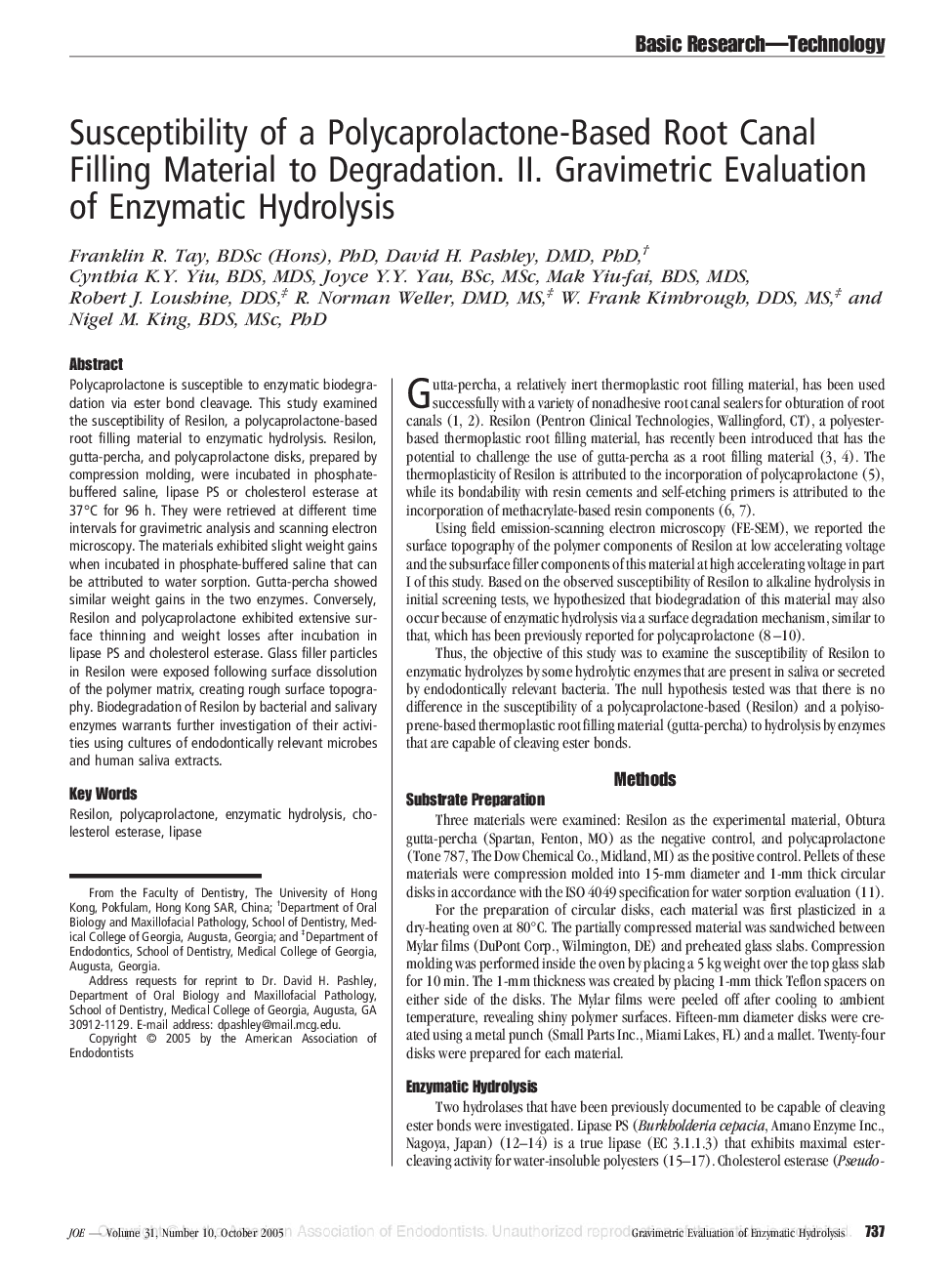| Article ID | Journal | Published Year | Pages | File Type |
|---|---|---|---|---|
| 9212077 | Journal of Endodontics | 2005 | 5 Pages |
Abstract
Polycaprolactone is susceptible to enzymatic biodegradation via ester bond cleavage. This study examined the susceptibility of Resilon, a polycaprolactone-based root filling material to enzymatic hydrolysis. Resilon, gutta-percha, and polycaprolactone disks, prepared by compression molding, were incubated in phosphate-buffered saline, lipase PS or cholesterol esterase at 37°C for 96 h. They were retrieved at different time intervals for gravimetric analysis and scanning electron microscopy. The materials exhibited slight weight gains when incubated in phosphate-buffered saline that can be attributed to water sorption. Gutta-percha showed similar weight gains in the two enzymes. Conversely, Resilon and polycaprolactone exhibited extensive surface thinning and weight losses after incubation in lipase PS and cholesterol esterase. Glass filler particles in Resilon were exposed following surface dissolution of the polymer matrix, creating rough surface topography. Biodegradation of Resilon by bacterial and salivary enzymes warrants further investigation of their activities using cultures of endodontically relevant microbes and human saliva extracts.
Related Topics
Health Sciences
Medicine and Dentistry
Dentistry, Oral Surgery and Medicine
Authors
Franklin R. BDSc (Hons), PhD, David H. DMD, PhD, Cynthia K.Y. BDS, MDS, Joyce Y.Y. BSc, MSc, Mak BDS, MDS, Robert J. DDS, R. Norman DMD, MS, W. Frank DDS, MS, Nigel M. BDS, MSc, PhD,
